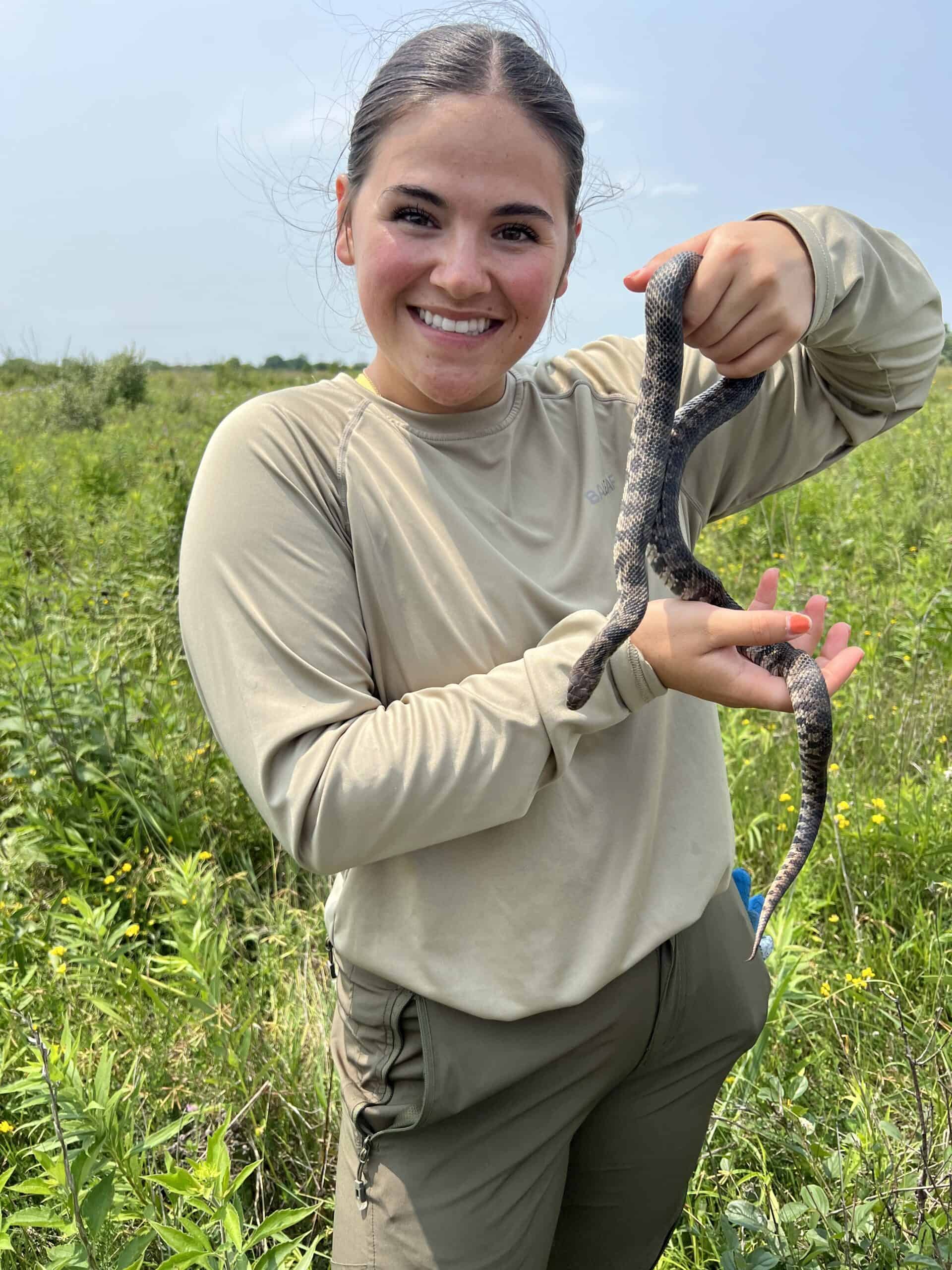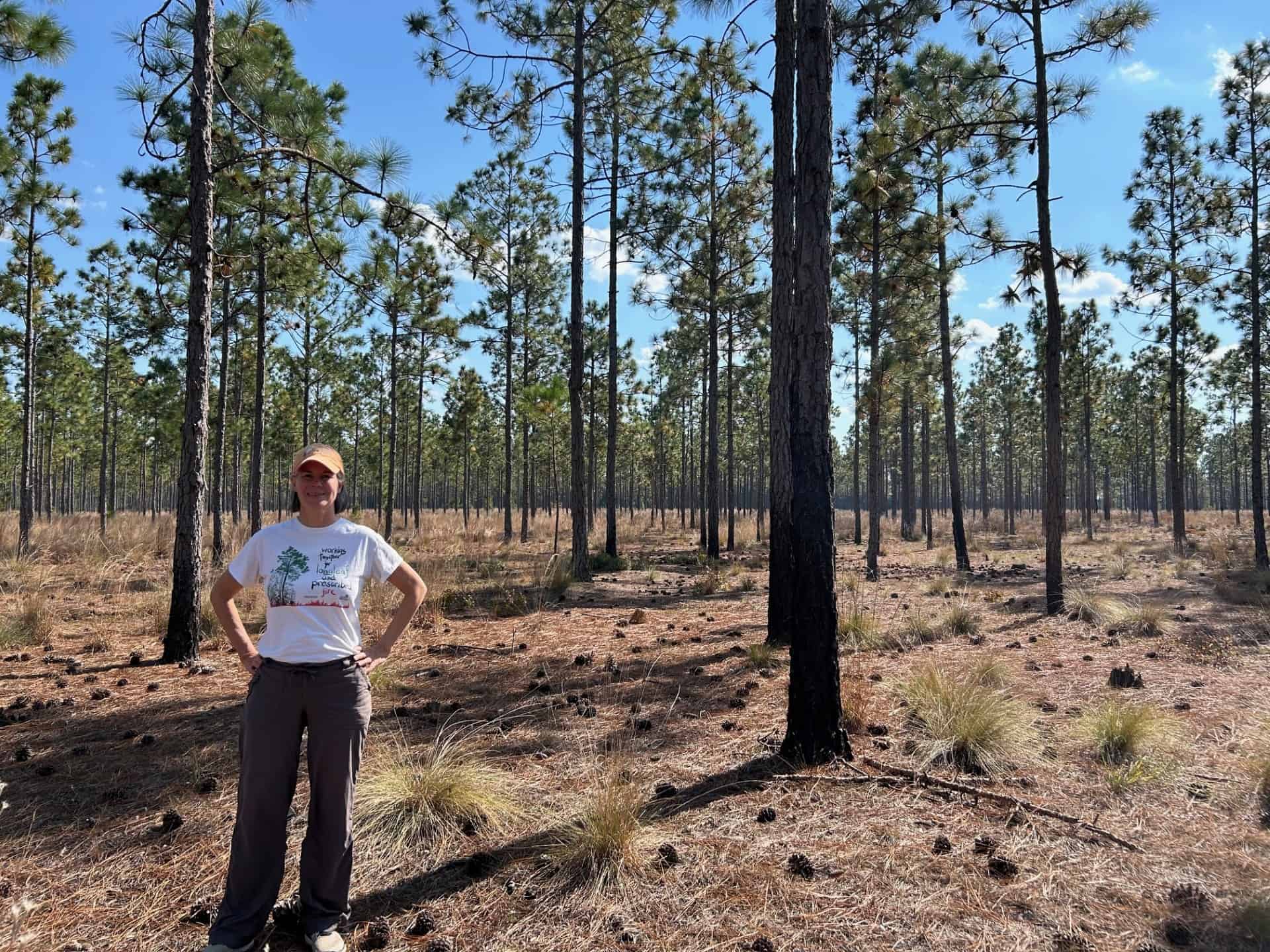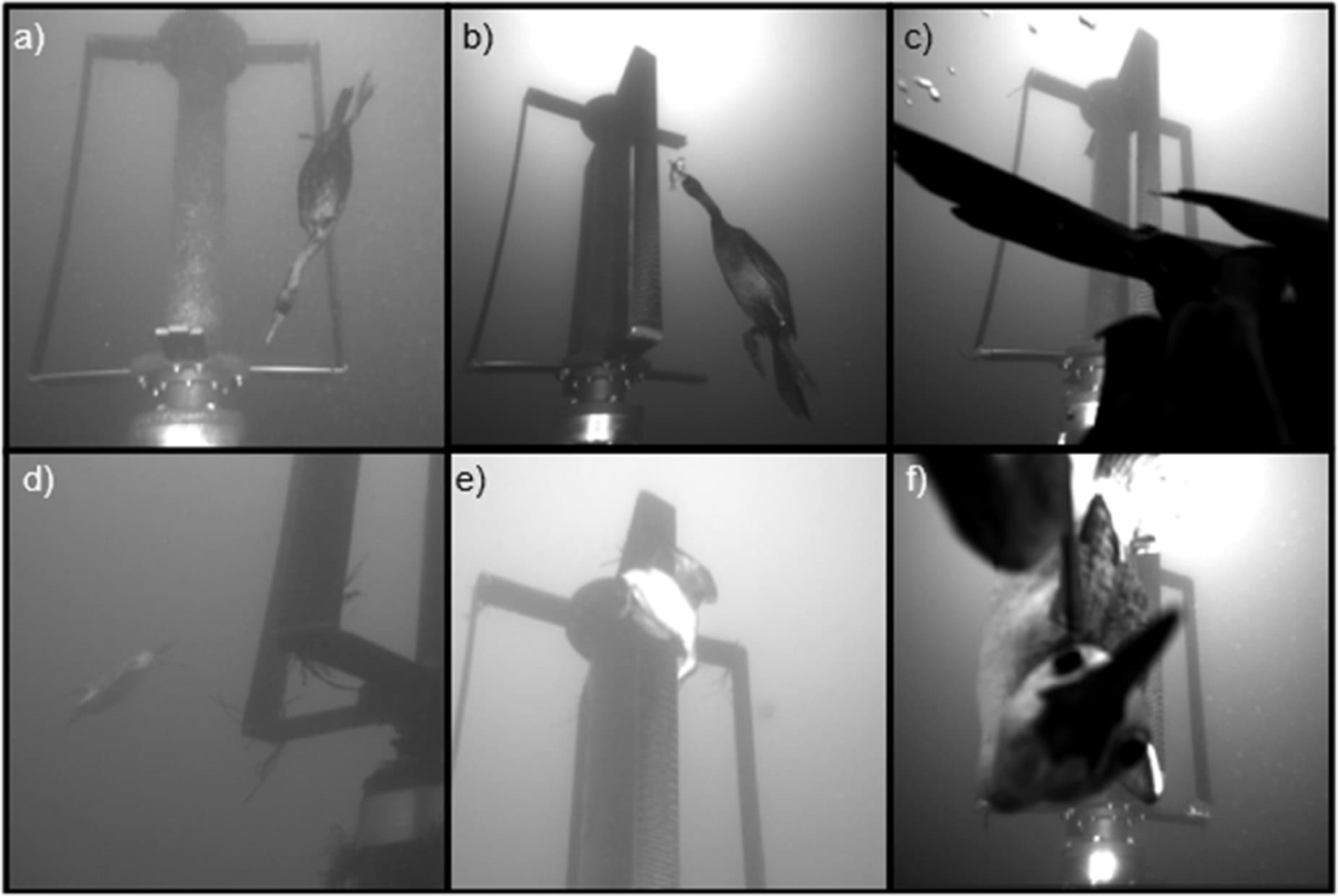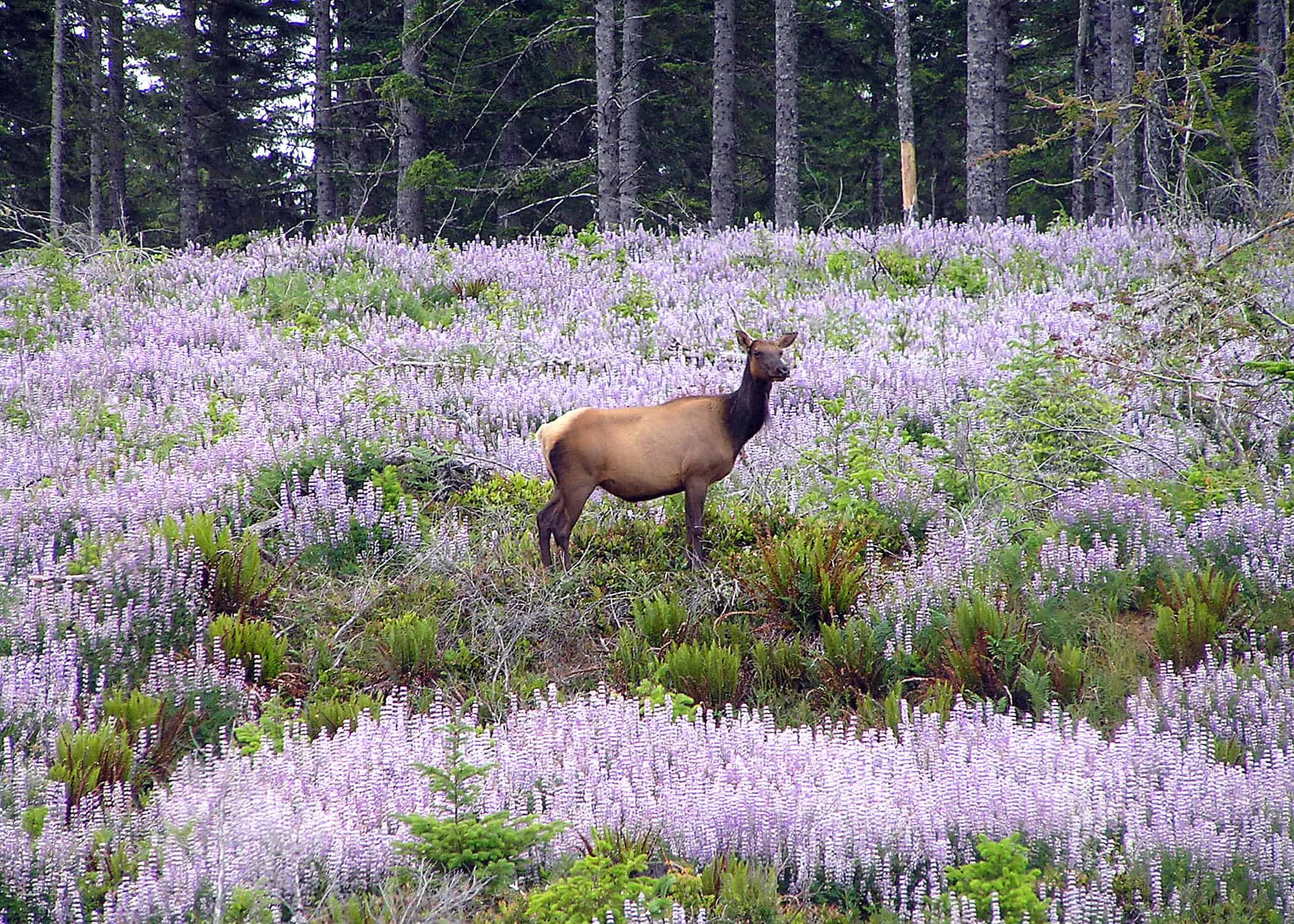Share this article
Native American Research Assistantship student heads to UN forum
Tanikwah Lang will attend the Biannual UN Global Indigenous Youth Forum
Tanikwah Lang thought it was a big deal to leave the comfort of her ancestral homeland in southern Oregon to take part in the Native American Research Assistantship program on the Midewin National Tallgrass Prairie in Illinois. That was until she’d learn she’d been selected to travel much farther to attend the Biannual UN Global Indigenous Youth Forum this October in Rome, Italy.
This past summer, Lang, a senior at the Oregon Institute of Technology, took part in the NARA program, a partnership between TWS, the U.S. Forest Service and the U.S. Geological Survey that selects Indigenous people to be involved in research projects and meet professionals in the field. Lang was selected to work on a project in the Midewin National Tallgrass Prairie on bison (Bison bison) reintroduction and its potential effects on grassland birds.
“I was so excited,” said Lang, a TWS member. “I ended up taking my finals a week early and driving from southern Oregon to Illinois.”
That was a topic that was new to Lang. She had previously spent two years working with the Klamath Tribes, which she belongs to, on their efforts to restore aquatic resources. Lang spent the summer helping PhD student Alejandro Chávez Treviño with his research project, tracking eastern meadowlarks (Sturnella magna) and other grassland birds with fellow NARA student Sabrina Sanchez, also a TWS member.
“She was willing to try anything and everything,” said Susannah Lerman, a research ecologist with the U.S. Forest Service and Lang’s mentor. “I remember her just wanting to be out catching meadowlarks and putting radio tags on them. She was super excited to learn about that whole process.”
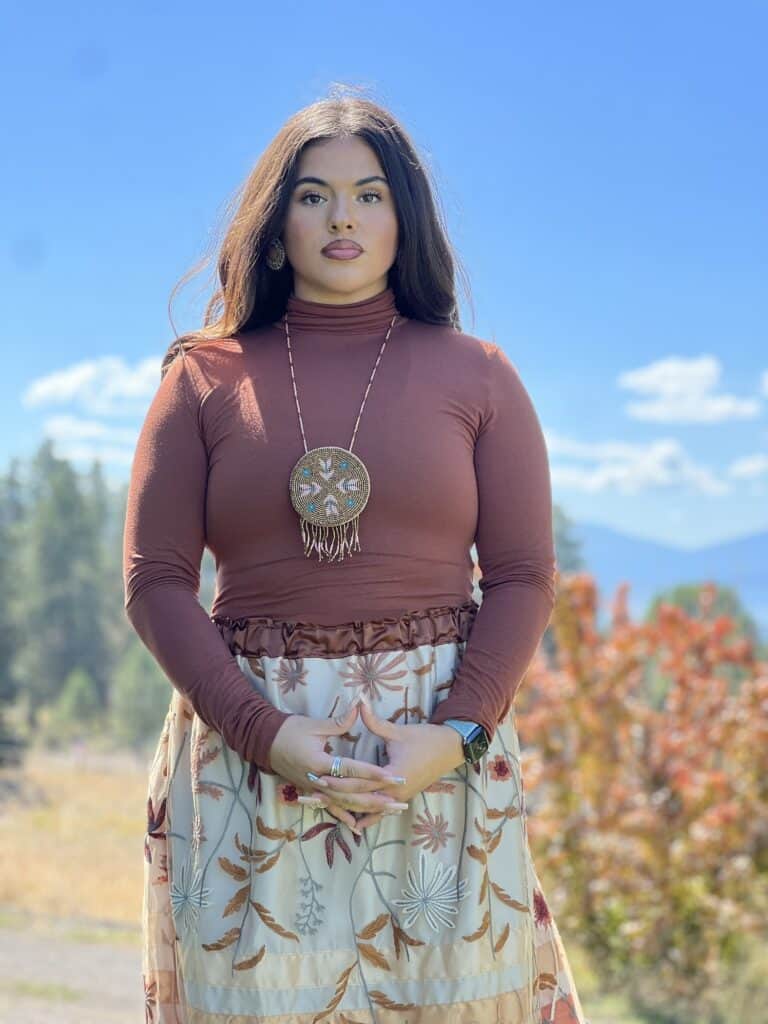
Lang also spent that summer networking. She learned from other U.S. Forest Service biologists about how to survey snakes and interviewed the fire crew about their career paths. Lerman also introduced her to a leader with the Food and Agricultural Organization of the United Nations. That’s how she learned about the Biannual Global Indigenous Youth Forum.
Lerman encouraged her to apply to the forum, and she did, checking her email every day until her acceptance appeared. “I was just feeling super grateful in that moment,” Lang said. “Not only that I was having an amazing summer, but it’s still happening. I’m still receiving the benefits that this program has to offer for Indigenous youth.”
Lerman was almost as excited as Lang was. “I was jumping up and down, telling my family,” she said. “It’s so great to see these wonderful opportunities happen for people who work hard and persevere.”
The forum, hosted by the Food & Agriculture Organization of the United Nation, provides a space for dialogue between Indigenous youth, UN agencies, universities, researchers and others to discuss policies and open up conversation about Indigenous people’s food sources, especially in the face of things like climate change.
Lerman hopes Lang returns from the forum with a stronger sense of community. “I hope she comes back knowing she’s a leader,” she said. “I’m really excited for her to take what she learned from the forum and bring it back to her Tribe.”
Lang hopes to bring her culture and community’s knowledge to the conference, including the traditional ceremonies she’s participated in. She hopes to learn more about policies and ways to implement them in her homeland to improve those traditions, combat climate change and work with local governments. “We have faced a lot of issues related to climate change in my community,” she said. “Drought as well as losing endangered species that are culturally significant. I’d love to be able to bring back information to help with that.”
Header Image: Tanikwah Lang surveyed snakes as part of her program with NARA. Credit: Sabrina Sanchez



